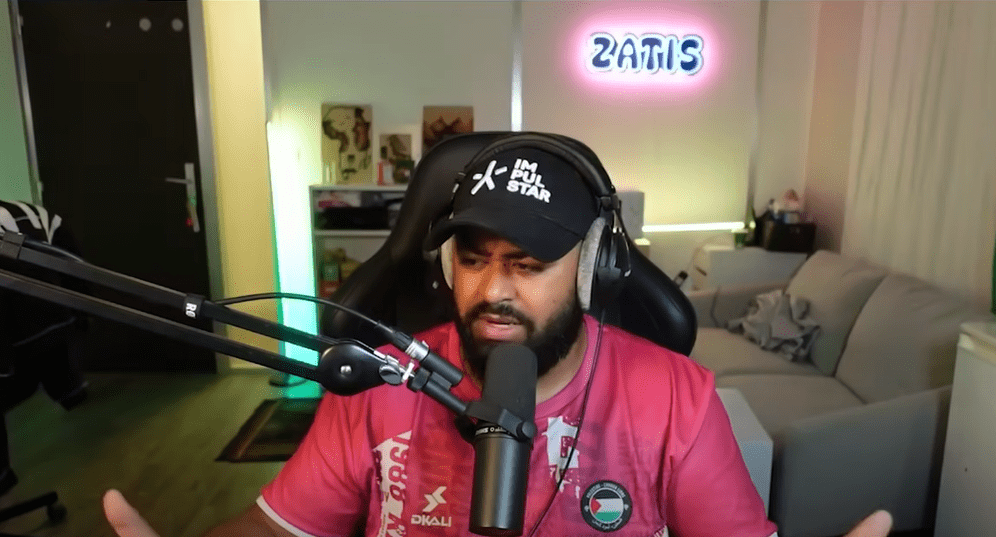In a world where millions of phones used to ring with Mehdi Bassit’s laughter every day, the void left by his absence feels remarkably strange. Known lovingly as “Med le Vrai” and more controversially as “Mehdi Saucisson,” Bassit became well-known online by fusing unvarnished humor with honest candor. His frequently straightforward and sincere content garnered a sizable following—2 million on TikTok alone. But beneath every clever joke and sausage clip was a man slowly collapsing under the weight of unseen injuries.
Mehdi was more than just a comedian to many of his fans. He was openly human, relatable, and sometimes flawed. He was an ardent supporter of Olympique Lyonnais, loved charcuterie, and had a great affection for his two daughters. However, despite sharing loving images and upbeat captions, statements like “A smile that hides a lot” alluded to struggles he was waging behind closed doors. These weren’t merely lyrical observations. They were indicators.
Mehdi had been the victim of especially savage online harassment in recent months. Among conservative Muslim users, his notorious video of him eating saucisson during Ramadan incited outrage. The backlash was severe and unrelenting, despite the fact that his intentions were very clear—he didn’t practice the religion and wanted to freely express that. By identifying himself as “Mehdi Saucisson,” he tried to regain control of the story, but comedy could only cover so much. The animosity never truly subsided.
Mehdi Bassit – Personal & Career Overview
| Attribute | Detail |
|---|---|
| Full Name | Mehdi Bassit |
| Age at Death | 32 years old |
| Nicknames | Med le Vrai, Mehdi Saucisson |
| Date of Death | July 19, 2025 |
| Nationality | French |
| Hometown | Liévin, Pas-de-Calais, France |
| Known For | TikTok influencer with over 2 million followers |
| Children | Father of two young daughters |
| Cause of Death | Suspected suicide following prolonged cyberharassment |
| Notable Quote | “Je garde le sourire…” (“I keep smiling…”) |
| Social Media | TikTok: @medlevrai, Instagram: @mehdi_bsst (205K followers) |
| Reference | https://www.lefigaro.fr/actualite-france/qui-etait-mehdi-bassit-le-tiktokeur-surnomme-mehdi-saucisson-mort-a-l-age-de-32-ans-20250721 |

One reality emerged from this controversy: social media is incredibly good at creating stars but dreadfully bad at keeping them safe. There were days when Mehdi sat by himself, engulfed in hurtful remarks and baseless charges for every second that he went viral. In a heartfelt TikTok tribute, his close friend Djouliette wrote, “Too much hate, too much harassment, too many lies.” Her trembling candor struck a chord with almost 9 million viewers, demonstrating how quickly grief spreads, much like fame.
The similarities to other well-known people are all too familiar. The UK’s Caroline Flack. Japan’s Hana Kimura. Like Mehdi, both women experienced cruelty on the internet that was exacerbated by their notoriety. Digital abuse combined with mental health issues has proven to be an especially deadly toxic cocktail. Tragically, Mehdi’s death—which an autopsy determined was a suicide—adds another name to the growing list of victims of the digital age.
Mehdi’s story is particularly heartbreaking because it speaks to common people, particularly young fathers juggling their everyday obligations and emotional stability. He didn’t curate his social media with opulent vacations or filters; instead, it showed the life of a man balancing satire, sadness, and fatherhood. He created authenticity in a field that is so frequently dominated by performance by fusing amusing sketches with portraits of his daughters and remembrances of his deceased father.
Mehdi’s genuineness was both his greatest asset and his greatest weakness in the context of his online celebrity. He made no pretense of being flawless. He publicly shared his difficulties on social media. On camera, he sobbed. He shared his laughter with his followers. But rather than being encouraged, many made fun of his candor. In the end, emotional honesty—the very quality that cultivated his fan base—exposed him to sharper blades.
However, the question still stands: what accountability does a platform such as TikTok have when its creators start to falter? Is it appropriate to use algorithms that are intended to increase engagement to identify distress as well? Some contend that intervention may be possible if emotional language in content is monitored. Others caution against invasions of privacy and overreach. In any event, Mehdi’s case emphasizes how urgent action is. Being famous shouldn’t be a death sentence.
Mehdi’s influence has endured despite his passing. In France, his story has rekindled discussions about online ethics and mental health. To show their respect, a number of influencers have put a halt to their planned content. Fans and friends came together for a communal moment of mourning and introspection at a white march in Liévin. Perhaps the most innocent victims in this story are Mehdi’s daughters, who are now left with memories captured in digital pixels.
Surprisingly, his legacy may act as a change agent. According to reports, French lawmakers are currently debating improved safeguards for digital creators, such as streamlined cyberharassment reporting procedures and mental health resources. The public outcry after Mehdi’s death has generated momentum that feels especially promising, even though policy rarely moves quickly.
Mehdi Bassit serves as a reminder that beneath every follower count is a frail soul in this digital age where numbers frequently eclipse subtlety. He leaves behind caution as well as content, a reminder that cheers can easily become fodder. In light of his journey, society must decide whether to continue using cruelty to silence people or to establish more secure and caring online environments.

